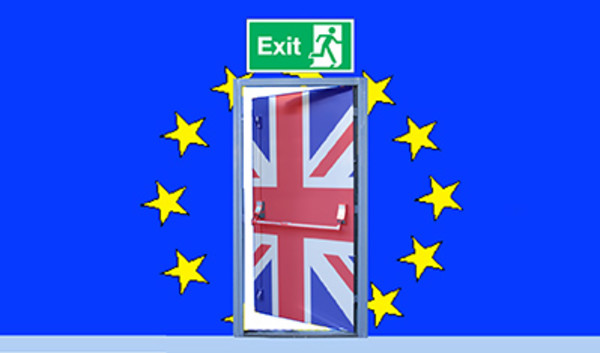

Prime minister David Cameron’s hopes of securing a Remain vote have been dashed as 51.9 per cent voted to sever Britain’s 43-year membership of the European Union and 48.1 per cent voted to stay in.
As the results came in during the early hours of today (24 June) and it became clear that pollsters had got it wrong and the UK was leaving the European Union, the pound dived to a 30-year low.
The pound swung by more than 10 per cent between its high and low points and FTSE 100 futures slumped 8.5 per cent.
Just over a week ago, the pound approached $1.40 to the dollar and then surged, peaking at $1.5018 as polls were released soon after voting ended that suggested a Remain victory and UKIP leader Nigel Farage appeared to concede defeat.
At the time this article was published (24 June) the pound hit a low of $1.3224, a level last recorded in 1985.
The pound has rarely been valued at less than $1.40 apart from during the mid-1980s era of extreme US dollar strength.
Earlier this week, billionaire George Soros - who forced then prime minister John Major to pull Britain out of the ‘European Exchange Rate Mechanism’ in 1992 - claimed the collapse in the value of the pound today could be even bigger than Black Wednesday.
Within minutes of the markets opening this morning the FTSE fell 7 per cent.
The oil price declined immediately by around 5 per cent as the likely result of the vote became clear, suggesting expectations for a marked decline in global demand.
Other early indicators included declines in the Australian, Hong Kong and Japanese equity markets, which were still in session as the results were being announced.
Bond yields immediately declined (prices rose), as investors began to seek perceived safe havens.
This morning the Bank of England stated it was monitoring market developments closely in conjunction with HM Treasury and other central banks and would “take all necessary steps to meet its responsibilities for monetary and financial stability.”
The vote revealed deep divisions across Britain, with London and Scotland voting by large margins to stick with the European Union, while most towns, seaside resorts and rural England wanted to leave.
Richard Buxton, head of UK equities and chief executive of Old Mutual Global Investors, said the initial reaction in financial markets has shown, there is no merit in pretending that for investors and companies this is not, by some margin, the worst of the two possible outcomes of the referendum.
He said: “We had expected the result of the vote to be close, but our conviction was nevertheless that the status quo would prevail.
“The biggest sadness of today is that it is reasonable to assume that the UK will quickly enter a period of economic recession, the key reason why we believed the outcome would be different from what has materialised today.
“It is, in effect, likely to be the first ever ‘DIY recession’, as (chancellor) George Osborne prophetically called it.
“It is difficult to say at this stage what action the Bank of England may take, but it is not impossible to imagine that it may quickly cut interest rates.
“Restarting the programme of quantitative easing – a feature that has been absent from the economic landscape for some three years now – also looks a possibility. At the very least, the central bank is likely to indicate its preparedness to take such action.
“We believe that the prospects for domestically focused UK businesses are clearly the bleakest of all. FTSE multinationals will, on a relative basis, almost certainly perform better than their domestically oriented peers as the weaker pound will support overseas earnings when translated back into sterling.
“Nevertheless, investors should now brace themselves for an unpleasant period of relatively indiscriminate selling as funds aim to meet redemptions in conditions where liquidity may be more limited than usual.”
Darius McDermott, managing director of Chelsea Financial Services, said: “In terms of stock markets, we could be in for a few difficult hours, days and months. Buckle up. It could be quite a ride.
“Markets will now look to our politicians to see how they will deal with the situation – what plans they have to make this work. Also crucial will be the Bank of England’s response to huge moves in the pound.
“We don’t want knee-jerk reactions from parliament. What we actually need is for our leaders to be sensible, rational and show us some stability.
“So markets are likely to be volatile in a general downward direction for a while, not helped by the fact that there are other big issues in the world that could also have an impact: China slowing, the US election and now possible contagion of Brexit to Frexit etc....
“But the world won’t end.”



